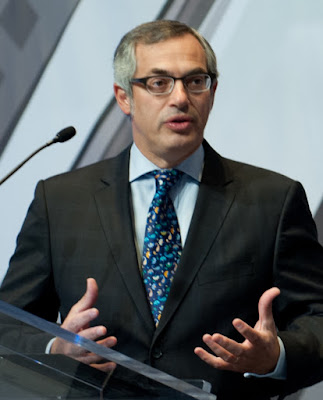 |
| Sex junkie? |
Of more interest is Clement's public pledge to “get help” over his supposed personal problems, and Andrew Scheer's approving note that Clement was “seeking help.”
What sort of help?
If it were going to his minister or his priest for confession, I'd see the point. But it sounds like another example of our medicalization of moral issues. Which goes nowhere. Sin is not illness; medicalizing it is a way to avoid taking responsibility for one's acts, and the only way to avoid sin is to take responsibility for one's acts.
I expect good old AA is largely to blame on this. For all the good they have done, they may have started the bandwagon rolling with their insistence on alcoholism being a disease. A popular idea, no doubt, with alcoholics; but never true. Alcoholism is a vice. A vice is superficially similar to an addiction: it corrodes free will. But addiction is physical; vice is spiritual. Addiction may be treated with pills. Vice can only be treated with personal resolve, and no one else—no white-smocked professional—can do personal resolve for you. He or she can only help you in your avoidance a little longer.
As it happens, one's body can also become physically addicted to alcohol—hence the DTs. This was unfortunately helpful in creating the delusion that the two, the vice and the addiction, were the same thing.
It then became easy to extend the delusion to any other sort of vice, so that since Bill Clinton we speak of “sex addiction”; now there are officially “behavioural addictions.” And, presumably, no more sin in the world. By this fuzzy logic, anything can be an addiction, it is impossible to determine that any one thing is more addictive than another, and moral responsibility is altogether gone. Making all these addictions incurable, at least by known, conventional methods. And then we wonder why there is a sudden explosion in “addictions.” “It's not my fault. Nothing I can do. I'm addicted.”
This is especially troubling in our political leaders: to see that they themselves do not believe in, and do not accept, any moral responsibility. One is left to wonder: if Andrew Scheer or Tony Clement believe they are not in principle responsible for their own decisions and actions, why on earth would we put them in any position of responsibility?













No comments:
Post a Comment